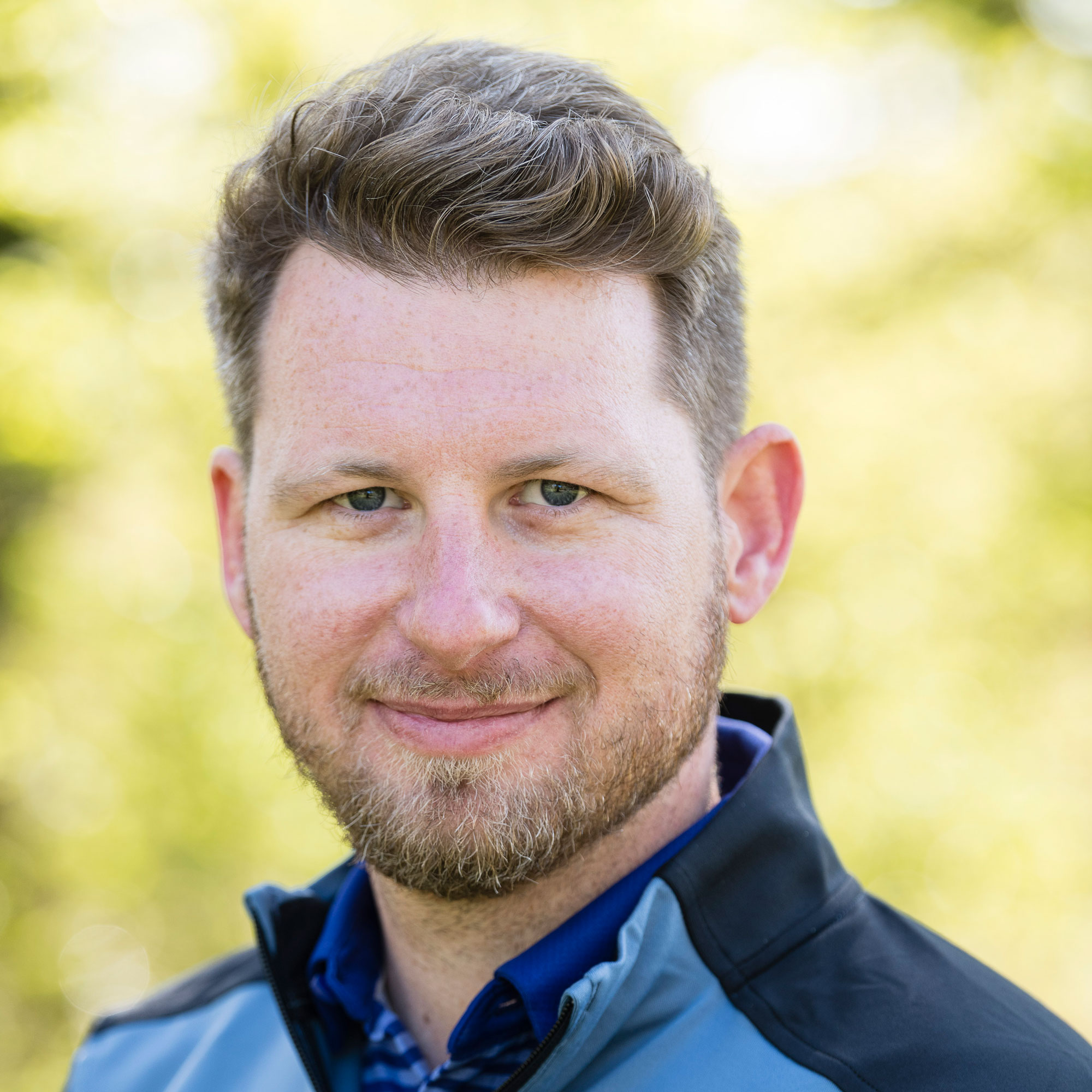Justin Rose Exclusive: "I Still Feel Like The Best Is In Me"
Justin Rose reflects on an illustrious career and reveals why he is still motivated to achieve more
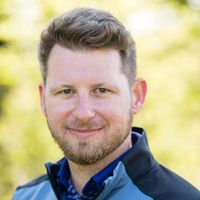
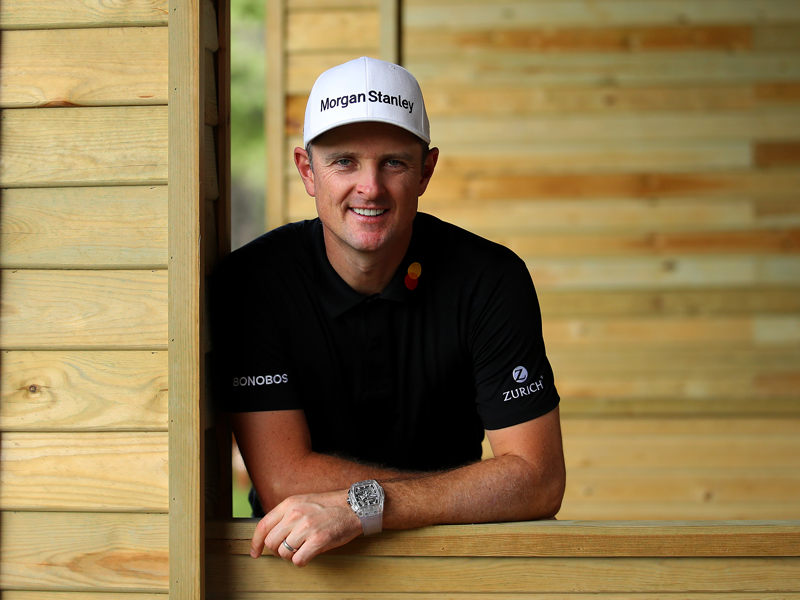
Subscribe to the Golf Monthly newsletter to stay up to date with all the latest tour news, equipment news, reviews, head-to-heads and buyer’s guides from our team of experienced experts.
You are now subscribed
Your newsletter sign-up was successful
Want to add more newsletters?

Delivered daily
Daily Newsletter
Sign up for all the latest tour news, gear reviews, head-to-heads and buyer’s guides plus features, tips from our top 50 coaches and rules advice from our expert team.

Once a week
Kick Point
Sign up to our free Kick Point newsletter, filled with the latest gear reviews and expert advice as well as the best deals we spot each week.

Once a week
Women's Golf Edit
Sign up to our free newsletter, filled with news, features, tips and best buys surrounding the world of women’s golf. If you’re a female golfer, you won’t want to miss out!
Justin Rose reflects on an illustrious career and reveals why he is still motivated to achieve more
Justin Rose Exclusive: "I Still Feel Like The Best Is In Me"
Justin Rose is one of the most successful golfers Britain has ever produced.
He’s been a fixture at the top of the game for the last two decades and remains as determined as ever to add to his incredible CV as he embarks on his 24th season as a professional.
Despite missing his first 21 cuts as a pro, he’s gone on to build a career that’s seen him become a Major and Olympic Champion, win 22 times on six different continents, play in five Ryder Cups, top the European Tour’s Order of Merit and the PGA Tour’s FedExCup and spend the majority of the last nine years inside the top ten on the Official World Golf Ranking, including 13 weeks as number one in 2018 and 2019.
For someone so used to such consistently high standards, a 2020 in which he failed to win in a calendar year for the first time since 2009 and slipped outside the top 30 in the world rankings is a shock to the system.
It would be easy to look back on all he’s achieved and for the motivation to wane, but Rose is made of sterner stuff.
Subscribe to the Golf Monthly newsletter to stay up to date with all the latest tour news, equipment news, reviews, head-to-heads and buyer’s guides from our team of experienced experts.
He’s overcome poor form and adversity before and he’s determined to do so again.
At 40 years old, he’s still hungry for more success, without being shackled by the burden of not having won a Major or achieved those career-defining victories.
The next few years might just turn a great career into a legendary one.
How do you assess your career to this point?
Fooch (former caddie Mark Fulcher) asked me something similar in 2017.
He said, ‘Would you wipe the slate clean and go back to being a 17-year-old and have another go?’
It was a great question and I feel like I’m at that point in my career where I’ve achieved enough great things, in the sense of getting to World No.1, winning a Major, the Olympic Gold Medal, which was the biggest gift in my career.
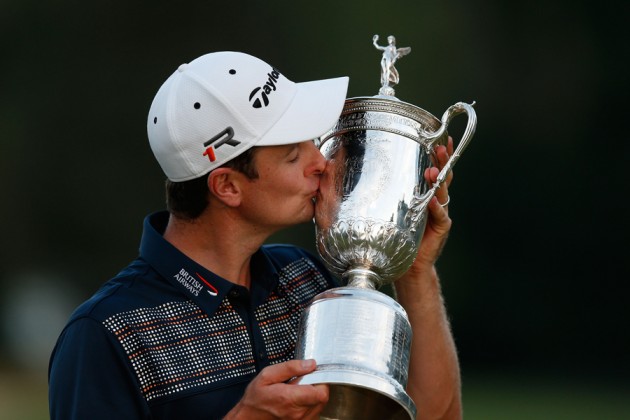
There’s been some things in there that you could never guarantee replicating, so I really feel content.
But I also feel hungry.
I think I’m in a win-win situation for the last stretch of my career.
That’s an exciting point to be.
What would you tell the 18-year-old Justin Rose who had just turned professional?
I had a lot of bumps in the road along the way, so I’d tell myself to focus on the journey, progression, your own game and incremental improvement year-on-year.
If you can achieve that then it’s amazing how much catch-up you can play.
We can all get caught up in comparison, and if you compare yourself to the 18-year-old sensation that can be disheartening at times.
So basically walk your own path and focus on incremental improvements and it’s amazing how far that will take you.
Related: 20 things you didn't know about Justin Rose
Have your memories of winning the 2013 US Open changed at all as time has passed?
Unfortunately, seven years goes too fast.
I would love to have kicked on and won more Majors – and that’s still my goal.
I’ve been very close.
I feel like I have kicked on after winning a Major, and that’s the important thing.
My relationship with the US Open is still very special – it’s the only one I have and I’m grateful to be a Major Champion.
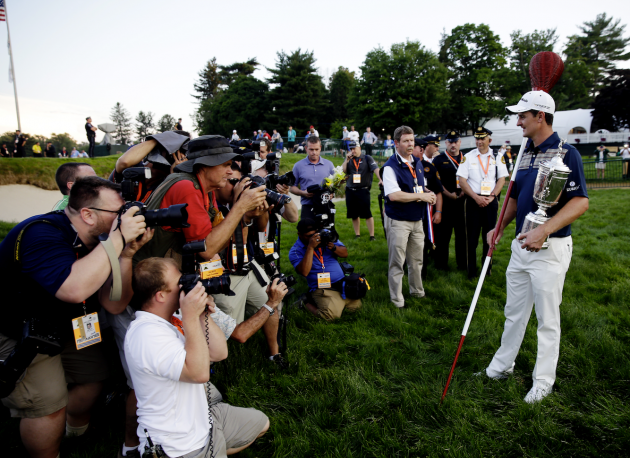
We all know there are many good and some great players who’ve never won a Major, so to have that done and dusted is nice.
To be in your 40s and trying to knock that off, you know you’re not going to have that many looks at it.
It’s nice to have that done, but I still feel there’s opportunity for me to go out and get those elusive ones that I haven’t won.
I’ve become a member of Merion, so I’ve had the opportunity to walk down memory lane and I’ve got to know the membership there, so it’s become a very special place for me.
The memories of winning on Father’s Day will be with me forever.
It was very emotional – a special day to win a golf tournament and a fitting way to honour my dad.
Was that the best moment of your career?
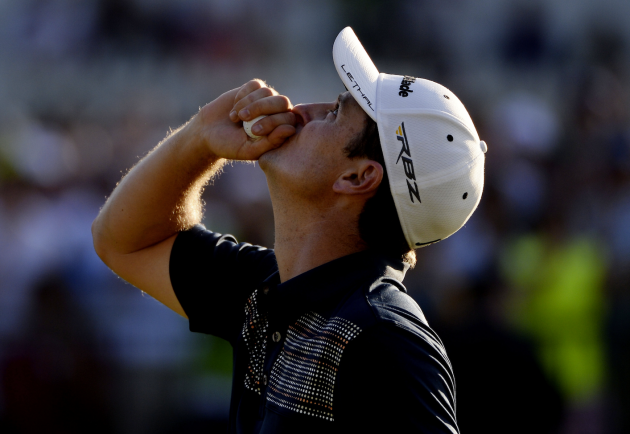
If I think through the deeper meaning and sentimentality of it, then yeah – having that opportunity where I did feel this deep connection to my dad.
It had been pretty much a decade since he passed away.
Time is a healer and all those cliches are somewhat true, but to feel like he was right there with me was just an amazing feeling, so that probably edges it over anything else.
And it is the biggest achievement I would say I’ve had in the game.
Where does the Olympics rank in the list of achievements?
The US Open and the Olympics are my two favourite moments in the game.
When I got to World No.1, I was furious that I hadn’t won the tournament, and when I won the FedExCup, I was furious at the way I finished and felt like I nearly gave it away.
So I wasn’t proud of myself in those two moments because I knew I could have done better.
Sometimes it’s the self-satisfaction that’s important.
The Olympics gave me so much.
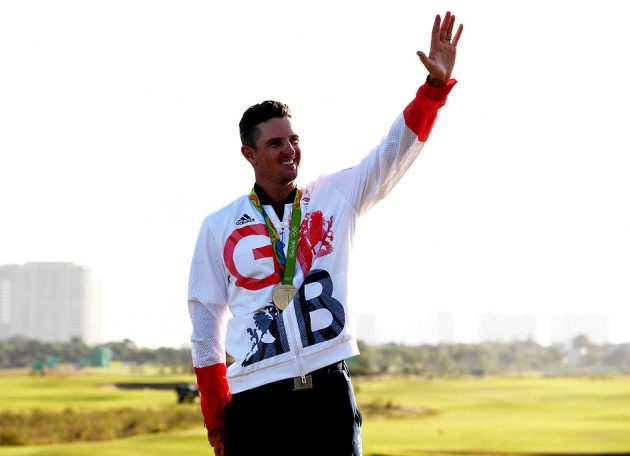
It was this incredible culmination of playing an individual sport but feeling like you were connected to something much bigger.
The opportunity to add to the medal tally for Team GB was amazing.
I met so many cool people, I was inspired and I felt like I learned so much.
It’s been the one tournament I’ve won that’s lived on the longest.
I’ve heard more from the fans about the Gold Medal than any other event I’ve won.
It’s been a real surprise.
What are your favourite Ryder Cup memories?
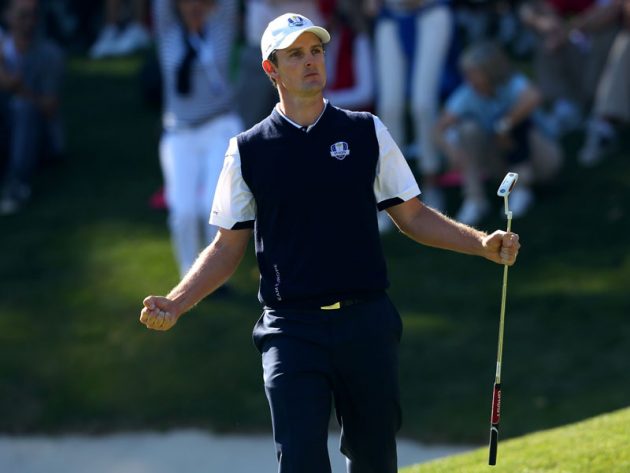
My all-time favourite is the champagne having to be moved from the US team room to the European team room late on Sunday afternoon at Medinah.
That was fantastic.
I’ve had a lot of positive experiences in the Ryder Cup, but Medinah is the one that stands out.
People think Europe have had this real dominance over the last decade or more, and we have done really well, but it’s pretty much gone with home course advantage other than Medinah.
It was a miracle on that Sunday.
To be a part of it was amazing and there was that palpable feel of Seve in the air.
I don’t think anything will top that one.
But being able to hit the first tee shot and lead out the team at Gleneagles and Paris – that first tee was just an insane experience.
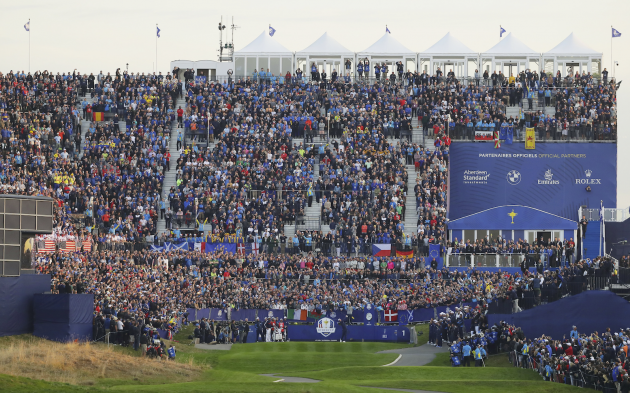
Those Friday mornings are amazing moments.
You can’t compare anything else in the Ryder Cup to a Friday morning.
The anticipation and build-up for those first few tee shots is incredible.
What did it take to reach World No.1 in 2018?
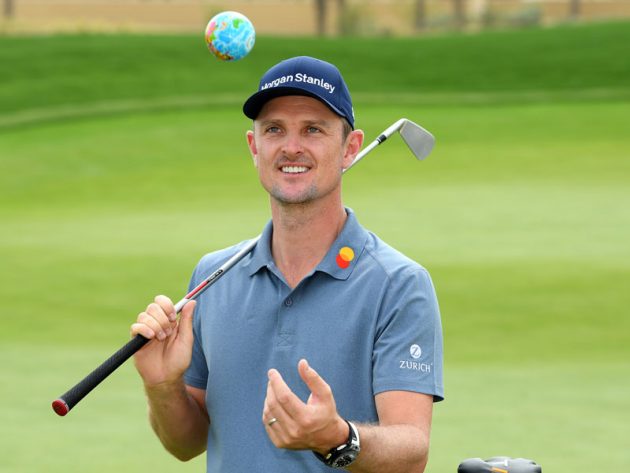
It took a high level of consistency.
I think I finished in the top ten 23 or 24 times out of 30 events.
When I got to number one it was very competitive.
Justin Thomas, Brooks Koepka, Dustin Johnson and myself were all very tightly packed up there, so there was an ebb and flow of getting to number one, losing it, then getting it back.
I was quite conscious of trying to rack up as many weeks as I could.
There were moments when I wouldn’t play a tournament and I’d go back to number one, so it was a bit weird.
But to win a tournament as a World No.1 – at Torrey Pines in early 2019 – was a great experience.
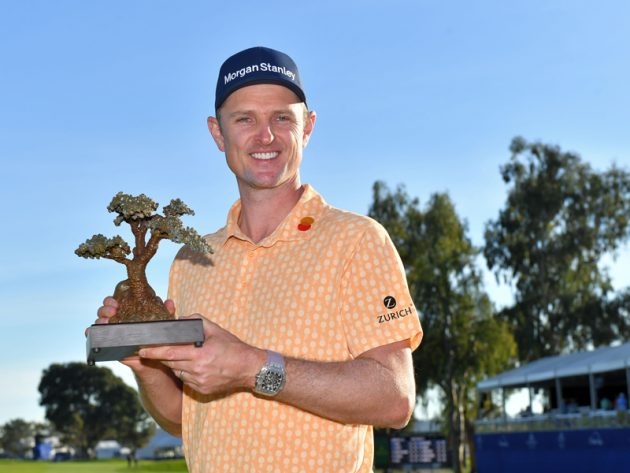
It was really special to regain number one by winning in Turkey in late 2018 as well.
There’s nothing like winning a golf tournament.
The world ranking is amazing and it’s a by-product of good golf, but you want to win tournaments.
I think that’s what we’re measured by, ultimately.
But topping the world rankings is a really cool thing to tell your grandkids one day.
Related: Justin Rose What's in the bag?
What has been the lowest point of your career?
I had a lot of them so early.
My career got off to such a strange start with all the anticipation and excitement after The Open at Birkdale and then missing 21 cuts.
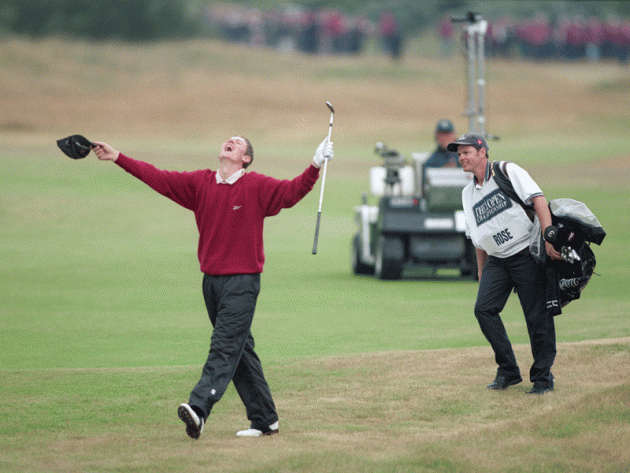
Six or seven events into that felt like the end of the world.
From that moment on, I learned to cope and realise that things would pass and things would be okay, and to focus on hard work and trusting myself.
I feel like I’ve often become the best version of myself when my back’s against the wall and I feel a bit low and uncomfortable.
I’ve become a bit of a counter-puncher, from that point of view.
That lesson has stood me in good stead for the rest of my career.
I don’t get too low – I get frustrated, but I know that wherever I am, I’m there for a reason.
I was at the top of the world rankings for a reason and I’m 32nd in the world at the moment for a reason.
There’s no hiding that, I’ve just got to do a better job of certain things and make better decisions – and I will.
I feel motivated.
As long as you feel motivated, you can punch your way out of any corner.
What do you feel hasn’t quite been working over the last year or so, and what are you working on to put that right?
I fell into some bad habits through 2019 – there was some change within the team and in equipment.
None of that was good or bad, it was just change.
It started off a snowball of things feeling a bit different.
I don’t think I made the right decisions in terms of what I was working on or adding in opinions from people.
I got into a cycle of working too much on my technique and then you start to lose the essence of what’s important, which is the mental side of the game and competing.
How does it feel to be back working with Sean Foley again?
It feels like home.
Foles is a brotherly figure in my life and I love spending time with him.
I think the break’s been good for both of us.
I feel like he’s sharpened his tool set a touch as well.
Sometimes a change is as good as a holiday, and it’s really good to be back with Sean because I trust him and he knows my game.
How important has your family been throughout the entire journey?
I’ve been really fortunate to have great parents who put time and effort into me.
My dad always found that nice balance of pushing me but not too much.
They were the stewards, really, of my talent and the early part of my career.
That’s a time of life where it can go wrong for so many teenagers, so I’m grateful for that.
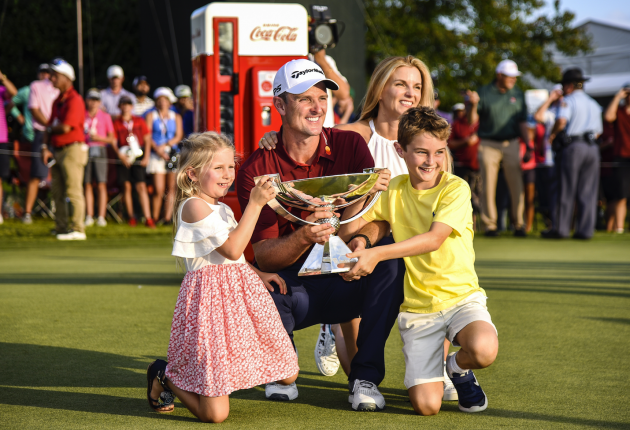
Kate, my wife, knows high performance.
She’s been a champion gymnast and she’s incredibly smart and bright and manages everything so well.
She makes the big decisions in our life as a family, in terms of what the phases are, where we’re going to live, schooling for the kids, all the big life decisions that if you get wrong can really create chaos.
But she’s done such a brilliant job of making the right call for us at the right time, so it’s left me pretty free to focus on golf.
What are the goals that keep you working hard and motivated?
The ultimate goal is to win the three Majors I haven’t won.
If I was able to do that, it would be a pretty epic career and something that no one else has been able to do if you include the Gold Medal.
I’ve finished second in The Open, I’ve lost a playoff in The Masters and I’ve had a third place in the PGA, so when you look at it that way, it doesn’t seem like such a crazy goal.
But to do it now in the last six or so years of my career is going to be challenging.
You’re up against the clock, for sure.
I still feel like the best is in me, but it doesn’t get any easier.
You look at the stats on tour and how many 40+ guys are competing and it does get fewer and fewer, but I think I can surprise myself still.
Kit Alexander is a golf broadcaster and journalist who commentates and presents for the DP World Tour, PGA EuroPro Tour and Rose Ladies Series. He has over 15 years’ experience of magazine and television work in the golf industry and is a regular contributor to Golf Monthly.
